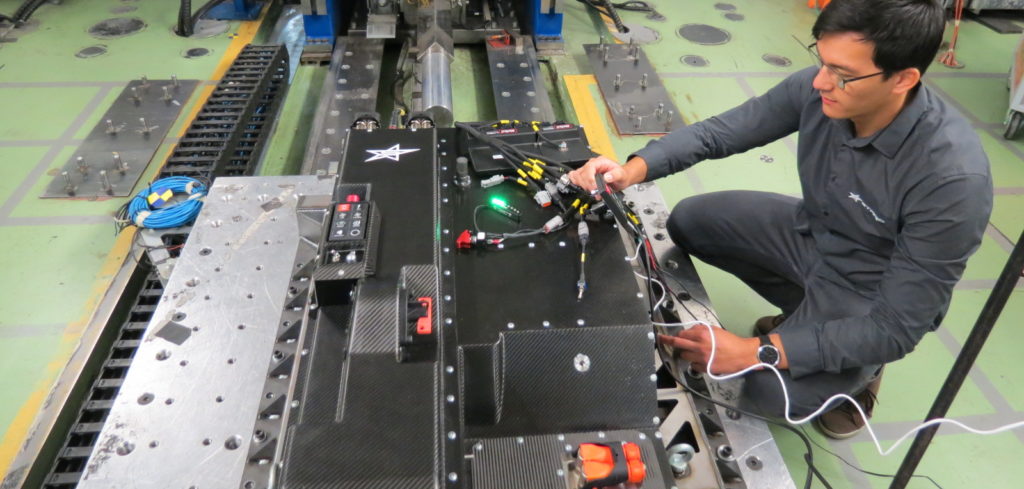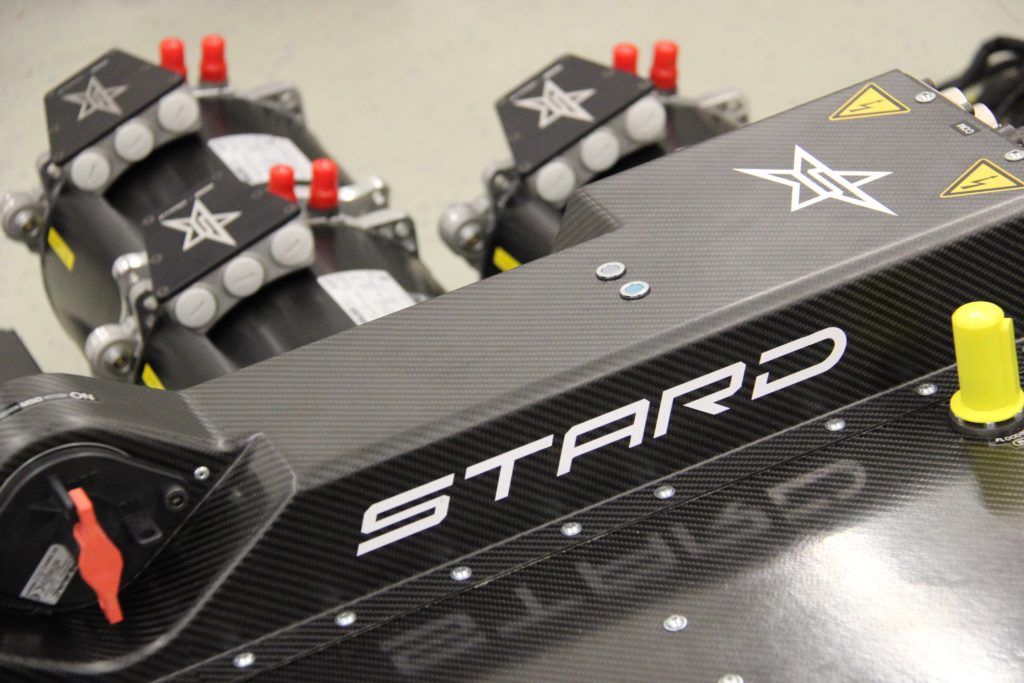While electric road cars have to pass stringent safety tests, those destined for competition use are faced with even stricter requirements, particularly regarding energy storage systems. Recently, Projekt E (a series for electric rally cross cars) technical partner STARD announced that it had passed the FIA’s high-voltage system crash tests with its in-house-developed battery system.
The FIA crash test criteria includes deceleration tests, where values are substantially higher than those for electric road cars, and are even more punishing when deployed to assess traction battery systems (as opposed to smaller batteries used in hybrid applications). Static mechanical tests are also part of the FIA’s approach, and are used to check impact and protrusion resistance of the RESS (rechargeable energy storage system) casing.
Prior to the tests, STARD undertook extensive in-house validation of both its battery system and traction motors. The traction batteries are housed in a carbon-fiber casing and, thanks to well-validated simulation systems, trial crash tests were not required and its system passed the FIA’s procedures first time, says STARD.
“The entire development process we carried out in-house started from individual lithium-ion cell level upward,” explained STARD CTO Philipp Thonet. “That included CAD packaging of all mechanical and electronic components, CFD simulation of the cooling system, FEA optimization and crash analysis of the prepreg carbon-fiber reinforced casing and, especially, development of an in-depth understanding of the electrochemical and electric requirements and limits of lithium-ion cell technology. In addition to the simulation and CAD methods, we are also processing physical lithium ion cells and dyno testing modules in-house.”



